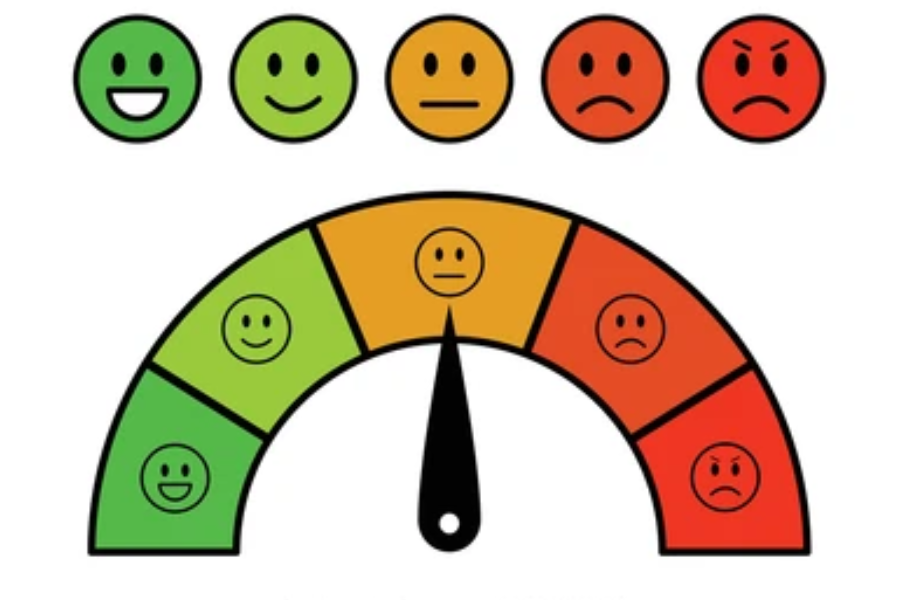Emometre: Understanding Emotional Health Measurement
In today’s fast-paced world, understanding and managing our emotional health is more crucial than ever. Enter the Emometre—a cutting-edge tool designed to gauge and analyze emotional well-being. This comprehensive guide delves into what an Emometre is, how it operates, and its significance for maintaining a balanced life. By exploring this innovative approach to emotional health, you can learn how to enhance your mental wellness, strengthen relationships, and boost overall happiness.
What is an Emometre?
Historical Background
The quest to measure and understand emotions is not a new endeavor. Ancient philosophers and early medical practitioners explored various methods to grasp the complexities of human emotions. Although the term “Emometre” is relatively modern, the pursuit of quantifying emotional states dates back centuries. Early tools and methods included philosophical introspection and rudimentary observational techniques, laying the groundwork for contemporary emotional measurement tools.
Modern Definition
Today, an Emometre represents a sophisticated tool or method used to assess and analyze an individual’s emotional health. Ranging from basic self-report questionnaires to advanced wearable technology, Emometres can monitor various physiological and psychological aspects of emotions. These tools provide valuable insights into how we perceive, regulate, and express our emotions.
How Emometres Work
The Science Behind Emometres
Emometres operate on the understanding that emotions are complex and multi-dimensional. These tools integrate psychological theories with practical applications to measure different facets of emotional health. By combining subjective self-reports with objective physiological data, Emometres offer a comprehensive view of an individual’s emotional state.
Types of Emometres
- Self-Report Questionnaires: These are standardized surveys where individuals rate their emotional experiences on various scales. Popular examples include the Positive and Negative Affect Schedule (PANAS) and the Emotional Regulation Questionnaire (ERQ). These tools provide insights into how individuals perceive and manage their emotions.
- Behavioral Observation: This method involves observing and recording an individual’s behavior in different scenarios to infer their emotional state. Often used in clinical settings and research studies, behavioral observation helps professionals understand emotional responses in real-life contexts.
- Physiological Measurements: Advanced Emometres use technology to measure physiological responses such as heart rate variability, skin conductivity, and brain activity. Devices like smartwatches and specialized sensors fall into this category, providing real-time data on an individual’s emotional state.
Why Emotional Health Matters
Impact on Physical Health
Emotional health is closely linked to physical well-being. Chronic stress and unmanaged emotions can lead to a range of health issues, including heart disease, high blood pressure, and a weakened immune system. By maintaining good emotional health, individuals can improve their overall physical health and reduce the risk of developing these conditions.
Social Relationships
Healthy emotional regulation is vital for building and sustaining strong relationships. It facilitates better communication, empathy, and conflict resolution. Individuals who manage their emotions effectively are more likely to foster meaningful connections and resolve conflicts constructively.
Work and Productivity
Emotionally balanced individuals tend to perform better at work. They handle stress more effectively, make sound decisions, and collaborate efficiently with colleagues. Investing in emotional health can enhance job satisfaction, productivity, and overall career success.
Components of Emotional Health
Emotional Awareness
The first step in managing emotions is being aware of them. Emotional awareness involves recognizing and understanding one’s feelings and how they influence thoughts and behaviors. By developing emotional awareness, individuals can better navigate their emotional landscape and make informed decisions.
Emotional Regulation
Emotional regulation refers to the ability to manage and respond to emotions in a healthy manner. Techniques such as mindfulness, deep breathing, and cognitive restructuring are essential for effective emotional regulation. These practices help individuals maintain emotional balance and cope with challenging situations.
Emotional Expression
Appropriate emotional expression is crucial for mental health. This includes communicating feelings through words, facial expressions, and body language. Effective emotional expression allows individuals to share their experiences and connect with others on a deeper level.
Applications of Emometres
Clinical Psychology
In clinical psychology, Emometres are used to diagnose and treat emotional disorders. By providing detailed insights into an individual’s emotional state, these tools help professionals develop tailored treatment plans and monitor progress over time.
Workplace Wellness Programs
Companies are increasingly incorporating Emometres into their wellness programs. These tools help enhance employee well-being, reduce burnout, and boost productivity. By tracking emotional health, organizations can create supportive work environments that foster employee satisfaction and engagement.
Personal Development
On an individual level, Emometres are valuable for personal growth. By monitoring emotional health, individuals can identify areas for improvement and take proactive steps to enhance their well-being. Emometres provide a structured approach to self-improvement and emotional management.
Advantages of Using Emometres
Early Detection of Emotional Issues
Emometres offer the advantage of detecting early signs of emotional distress. Timely intervention can prevent the escalation of emotional problems and provide individuals with the support they need.
Tailored Interventions
Insights gained from Emometres enable professionals to design personalized interventions. These tailored approaches address specific emotional health needs and enhance the effectiveness of treatment and support.
Enhanced Self-awareness
Regular use of an Emometre can increase self-awareness by helping individuals understand their emotional patterns and triggers. This heightened awareness allows for more effective emotional management and personal growth.
Challenges and Limitations
Accuracy and Reliability
Not all Emometres are created equal. Variations in accuracy and reliability can affect the validity of the results. It is essential to choose a well-validated and reliable tool to ensure accurate measurements of emotional health.
Privacy Concerns
Collecting and storing emotional health data raises privacy concerns. Ensuring the security and confidentiality of personal information is crucial to protect individuals’ sensitive data.
Cultural Differences
Emotional expressions and experiences vary across cultures, presenting challenges in creating universally applicable Emometres. Understanding and accommodating cultural differences is essential for developing effective and inclusive emotional health tools.
Innovations in Emometres Technology
AI and Machine Learning
Artificial intelligence (AI) and machine learning are transforming Emometres by providing more accurate and personalized insights. These technologies enhance the ability of Emometres to analyze complex emotional data and offer tailored recommendations.
Wearable Devices
Wearable technology, such as smartwatches and fitness trackers, is advancing the field of emotional health monitoring. These devices provide real-time assessments of physiological responses, offering continuous insights into emotional well-being.
Mobile Applications
Mobile applications designed for emotional health tracking are becoming increasingly popular. These apps make it easy for individuals to monitor and manage their emotions daily, providing accessible and user-friendly solutions for emotional health management.
Case Studies
Successful Implementation in Schools
Schools that have integrated Emometres into their curricula report positive outcomes, including improved student well-being, better academic performance, and reduced behavioral issues. These tools help educators monitor and support students’ emotional development.
Use in Corporate Settings
Companies that have adopted Emometres in their wellness programs have observed increased employee engagement, lower turnover rates, and enhanced productivity. By prioritizing emotional health, organizations create supportive work environments that benefit both employees and employers.
How to Choose the Right Emometre
Factors to Consider
When selecting an Emometre, consider factors such as ease of use, accuracy, data privacy, and the specific needs of the user. Evaluate different options to find a tool that aligns with your requirements and preferences.
Recommendations
Research various Emometres and read reviews to identify the best option for your needs. Consulting with a professional can provide additional guidance and ensure you make an informed decision.
Future of Emometres
Trends to Watch
The future of Emometres is promising, with trends like AI integration, advanced wearables, and enhanced data analytics on the horizon. These innovations will likely lead to more precise and user-friendly emotional health tools.
Potential Developments
Advancements in neuroscience and technology are expected to drive the development of even more sophisticated Emometres. These future tools will make emotional health monitoring more accessible and effective, benefiting individuals across various contexts.
Tips for Improving Emotional Health
Daily Practices
Incorporate practices such as mindfulness, regular exercise, and maintaining a healthy work-life balance to enhance your emotional health. These daily habits contribute to overall well-being and resilience.
Professional Help
If you’re struggling with emotional challenges, seeking professional help is essential. Therapists and counselors offer valuable support and guidance to help you navigate and improve your emotional health.
FAQs
What is an Emometre? An Emometre is a tool or method used to measure and analyze emotional health.
How accurate are Emometres? The accuracy of Emometres varies. It’s important to choose a reliable and validated tool for accurate results.
Can Emometres be used for children? Yes, Emometres can be adapted for use with children to support their emotional development.
Are there any free Emometre apps?
Several free apps offer basic emotional health tracking features.
How often should I use an Emometre?
Regular use, such as daily or weekly, is beneficial for tracking changes and identifying patterns in emotional health.
Conclusion
Emotional health is a fundamental aspect of overall well-being, and Emometres provide a valuable tool for understanding and managing it. By integrating Emometres into our lives, we can enhance self-awareness, address emotional issues early, and improve our quality of life. Whether used in clinical settings, workplaces, or for personal development, Emometres are paving the way for a healthier and happier future. Embrace the potential of Emometres and take proactive steps towards a more balanced and fulfilling life.
Stay connected for the latest news and updates on pressreleasetimes.






